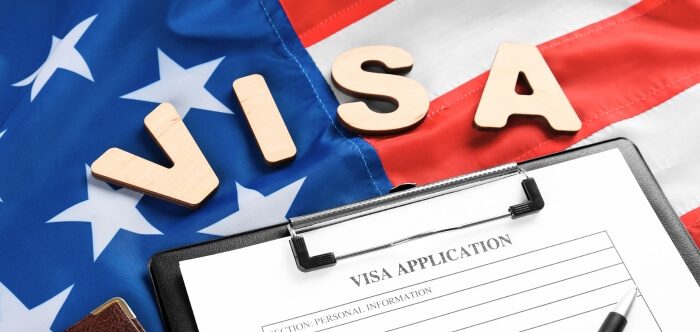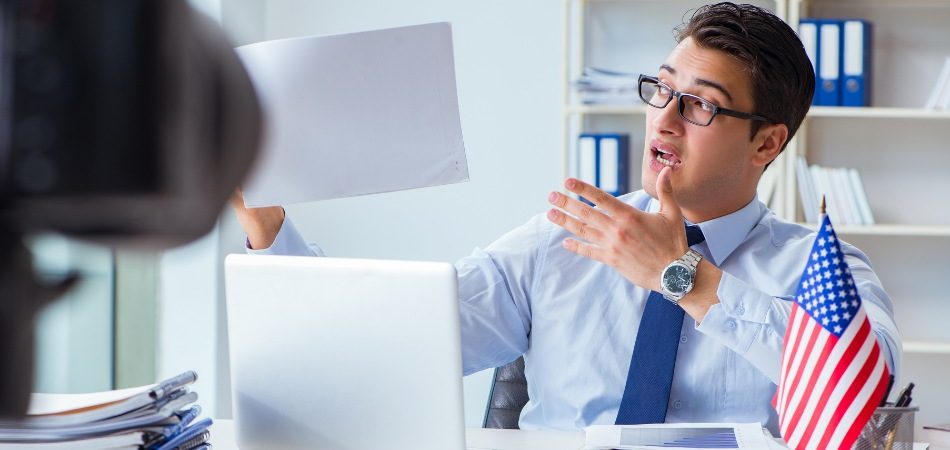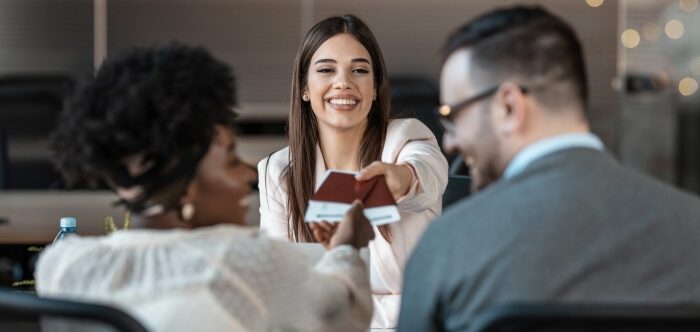Imagine you’re excited about attending a conference in the United States. You’re all set to learn, network, and explore new opportunities. But there’s a catch you need a US visa. Now, the big question is: how long does it take to get US visa for conference?
The processing time for a U.S. visa for a conference is 8 months but be more which varies depending on several factors, including the type of visa you are applying for and the workload at the U.S. embassy or consulate where you are applying.
In this blog, we’ll simplify the process of getting a US visa for a conference. Whether you’re a business pro, a student, or an exchange visitor, knowing the timeline is vital for your plans. We’ll guide you through the steps and explain what affects the timing. Let’s make your conference dreams come true without any confusion.
What is the Purpose of a US Visa for a Conference?
A US visa for a conference serves a critical purpose for international attendees. It allows them to participate in conferences, workshops, and seminars hosted within the United States. Individuals with diverse expertise and perspectives need a US Visa for a conference to convene and collaborate, promoting global knowledge exchange, and innovation.
Attending an international conference in the USA facilitates cross-cultural understanding and knowledge distribution by promoting international participation. It enables attendees to access cutting-edge research, network with peers, and contribute to academic and professional dialogues. Additionally, it supports the US economy by attracting foreign attendees who often contribute to local businesses and tourism during their stay.
Moreover, these visas reinforce diplomatic ties and partnerships between the US and other nations by encouraging intellectual and professional connections. The purpose of a US visa for a conference extends beyond individual participation; it plays a pivotal role in advancing international cooperation, fostering innovation, and promoting the global exchange of ideas and expertise.
How Long Does It Take to Get US Visa for Conference?
Obtaining a U.S. visa for a conference is a crucial step for international attendees eager to participate in events across the United States. Your conference planning can be greatly impacted by understanding the timeline for this process. So, let’s find out how long it takes to get a US visa for a conference. The processing time for a U.S. visa for a conference can vary based on numerous factors.
The processing time for a U.S. visa for a conference can vary based on numerous factors. The type of visa you need, whether it’s a B-1, F-1, or J-1 visa, can influence the timeline. The specific U.S. embassy or consulate where you apply plays a role, as their workload and procedures differ.
Additionally, the time of year you apply and any necessary security or administrative checks can also affect processing times. It’s advisable to initiate the visa application process well in advance of your intended travel dates.
For some, the process can take a few weeks, while for others, it may extend to a few months. Proper preparation, including completing the DS-160 form, paying the visa fee, scheduling an interview, and gathering the necessary documents, is essential for a smoother and timelier application process. Stay tuned as we explore these factors and provide valuable insights into navigating the path to securing your U.S. visa for a conference.
Types of US Visas for Conference Attendees
When attending conferences in the United States, several visa options are catering to different purposes and eligibility criteria. These visa types enable individuals to participate in conferences, workshops, and seminars while complying with US immigration regulations. Attendees must follow and ensure the USA Conference Visa Requirements while applying for their visas. This increases the chance of visa approval.
B-1 Visa (Business Visitor)
The B-1 visa is suitable for individuals attending conferences for business-related purposes, such as meetings, negotiations, or conferences. It allows short-term stays for networking, consultations, and exploring potential business opportunities. However, it prohibits individuals from receiving payment for services within the United States.
F-1 Visa (Student)
Students pursuing academic programs in the US can attend conferences under the F-1 visa. This visa permits students to engage in practical training and academic-related conferences that enhance their studies. They must ensure that the conference aligns with their academic objectives and obtain proper authorization from their Designated School Official (DSO).
J-1 Visa (Exchange Visitor)
The J-1 visa is designed for exchange visitors participating in a wide range of exchange programs, including conferences and research collaborations. Conference attendees can utilize the J-1 visa if their program sponsor authorizes their participation in the event. It promotes cultural exchange and collaboration between nations.
Visa Waiver Program (VWP)
Some travelers from Visa Waiver Program countries can attend conferences without obtaining a visa. However, they must apply for an Electronic System for Travel Authorization (ESTA) before traveling to the US. VWP visitors can participate in conferences as long as their primary purpose of travel is tourism or business.
O-1 Visa (Individuals with Extraordinary Ability or Achievement)
For conference speakers or participants recognized as experts in their fields, the O-1 visa may be an option. It’s designed for individuals with extraordinary skills or achievements in various fields, including science, arts, education, and business. Conference organizers often help secure O-1 visas for distinguished speakers.
Factors Influencing Visa Processing Times
Visa processing times can vary depending on several factors. Understanding these factors can help you better anticipate the timeline for your visa application. Here are the key factors that influence visa processing times:
- Visa Type: Different visa categories have varying processing times, with some, like tourist visas, often processed more quickly than others.
- Embassy Workload: The volume of visa applications at a specific embassy or consulate can affect processing times. High-demand locations may experience longer wait times.
- Time of Year: Processing times can fluctuate seasonally. Peak travel seasons, holidays, and backlogs can lead to delays.
- Security Checks: Visa applications may undergo security screenings, which can extend processing times.
- Administrative Processing: Some cases require additional administrative reviews, such as background checks or document verification, adding time to the process.
- Incomplete Applications: Errors or missing documentation can result in delays as applicants must rectify these issues.
- Interview Waivers: Certain applicants may be eligible for interview waivers, expediting the process, while others must attend an in-person interview, which can extend the timeline.
- Change in Policies: Changes in immigration policies or regulations can impact processing times, especially if new requirements are imposed suddenly.
- Country of Origin: An applicant’s home country can affect processing times, as certain nationalities may undergo additional scrutiny.
- Personal Circumstances: Individual circumstances, such as past visa violations or criminal records, may trigger more in-depth reviews, leading to longer processing times.
Having a better understanding of these factors can help you set realistic expectations for the processing of your visa application.
A Step-By-Step Guide to Getting a US Visa for A Conference
Attending a conference in the United States is an exciting opportunity, but obtaining the necessary visa can be a complex process. Attendees willing to participate in conferences from different countries of the world may find suitable and affordable conferences in USA 2024 this year, but getting a visa will make them suffer unless they have a good understanding of the US visa process along with US immigration law and regulations. To help you navigate this journey successfully, here’s a step-by-step guide:
Step 1: Determine Your Visa Type
Start by picking the correct visa category for a conference to attend. Whether it’s a B-1 for business, an F-1 for academics, or a J-1 for exchange programs, find the one that matches your purpose. Conference organizers or the U.S. embassy’s website can offer guidance.
Step 2: Complete the DS-160 Form
Access the DS-160 form on the U.S. Department of State’s website. Fill it out accurately, providing all required information. You’ll receive a confirmation barcode upon completion; save it for your records.
Step 3: Pay the Visa Fee
Pay the non-refundable visa application fee, which varies depending on your visa category. Payment instructions can usually be found on the website of the U.S. embassy or consulate where you’ll apply.
Step 4: Schedule a Visa Appointment
Create an account on the U.S. visa application website and schedule a visa appointment at the U.S. embassy or consulate in your home country. Ensure you select the correct visa category when scheduling.
Step 5: Gather Required Documents
Compile the necessary documents, which typically include your passport, DS-160 confirmation, visa fee receipt, a passport-sized photo, and any supporting documents specific to your visa category.
Step 6: Attend the Visa Interview
Show up for your visa interview at the U.S. embassy or consulate as scheduled. Be on time and make sure you have all the required documents with you. During the interview, be ready to explain why you’re attending the conference, your plans to return home, and any papers that support your trip’s purpose. A successful interview often leads to visa approval.
Step 7: Await Visa Processing
After the interview, the processing time varies. Some visas are approved on the spot, while others require additional administrative processing. Be patient and monitor the status of your application online.
Step 8: Visa Collection and Travel
Once your visa is approved, collect your passport with the visa stamp from the embassy or consulate. Now you’re ready to make your travel plans and attend the conference in the United States.
This step-by-step guide will help streamline the process of obtaining a U.S. visa for your conference attendance, ensuring a smoother and more enjoyable experience.
FAQs
Here are some relevant questions to this topic. We have provided adequate answers to them. Hopefully, they will add extra value to this article and help you with additional information on US conference visas.
When Should I Apply for My US Visa if I Have a Conference Coming Up?
Ans. It’s recommended to apply at least 2-3 months before your intended travel date to account for any delays in scheduling appointments or processing times. Early application helps ensure you have enough time to address any unexpected issues.
What Factors Can Affect the Processing Time of My US Conference Visa?
Ans. Factors that can impact processing time include the time of year (peak travel seasons), the volume of applications at the consulate, the completeness of your application, and whether additional documentation or administrative processing is required.
Can I Expedite My US Visa Processing for a Conference?
Ans. In some cases, you can request expedited processing if you have urgent reasons, such as an imminent conference. You’ll need to provide a valid reason, and approval is at the discretion of the embassy or consulate.
Do I Need an Appointment for a Visa Interview, and How Long Does It Take to Get One?
Ans. Yes, most applicants need to schedule an appointment for a visa interview. The wait time for an interview appointment can vary by location but usually ranges from a few days to several weeks. Checking the appointment availability at your local U.S. embassy or consulate is recommended.
How Will I Know if My US Conference Visa is Approved?
Ans. After your interview, the consular officer will inform you of the decision. If approved, your visa will be placed in your passport, which you can collect or will be sent to you via mail, usually within a few days to a week after approval.
Conclusion
Securing a U.S. visa for a conference is a vital step for international attendees, and we’ve addressed the question, how long does it take to get a US visa for conference, comprehensively in this guide. We’ve explored different visa types, and the purpose they serve in fostering global collaboration, and provided a user-friendly step-by-step application process.
Moreover, we’ve shed light on the factors that influence visa processing times and pointed up the importance of early planning and preparation. By understanding these nuances, prospective attendees can navigate the process smoothly and confidently.
So, as you jump on your journey to attend that exciting conference in the United States, armed with this knowledge, remember that with proper planning and patience, you can make your conference dreams a reality without unnecessary hassles or confusion.








